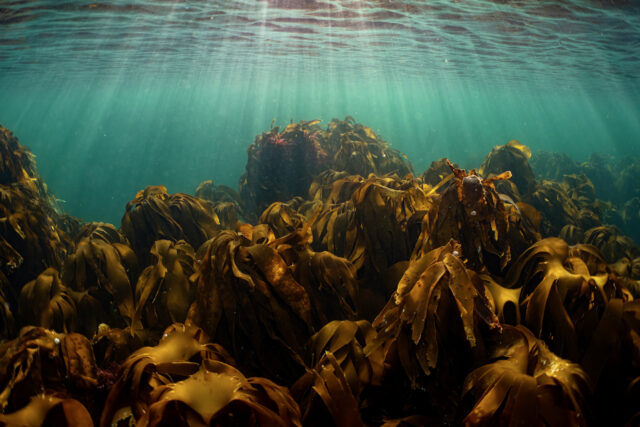
Safeguarding Scottish waters
Like most food producers, we're working hard to minimise any impact from our farming activities on the seabed and surrounding marine environment.

Working out in the Scottish elements, the potential for marine debris is very real so we take every precaution to prevent it from happening.
Moorings, buoys, netting, feed systems – we’re continually upgrading our farm equipment and infrastructure with newer models engineered to be even more resilient during extreme winds and strong swells.
Similarly, we regularly review and hone our own practices to reduce the potential for any items to become loose or break away, in good weather or in bad.
This includes:
We also train every new member of every farm team in knot-tying during their first week, everything from how to tie a knot securely to how many ropes are required to adequately secure an item, minimising the likelihood of ropes breaking free.

In the rare event that extreme weather does result in marine debris from one of our farms, we’ll notify the Coastguard. Then, as soon as conditions make it safe to do so, we’ll go looking for the item and retrieve it.
Equally, many of our farm teams can regularly be seen along their local shorelines removing debris from other marine users and/or general waste.
It’s about being good neighbours and doing everything we can to look after the environment in which we work and live.

Cleaning our local shores of marine and mixed waste is something we’ve been doing informally for many years now.
In 2018, our Orkney team signed up to the Marine Conservation Society (MCS) Great British Beach Clean.
Come 2024, our seventh year of participation, and we recorded 16 registered beach cleans across all four farming regions – Argyll and Bute, Highlands, Orkney and Shetland – collecting and removing all manner of waste items. You can see a full breakdown below.
For an insight into what’s involved, watch our Orkney colleagues’ short video, taken in 2021, here.
